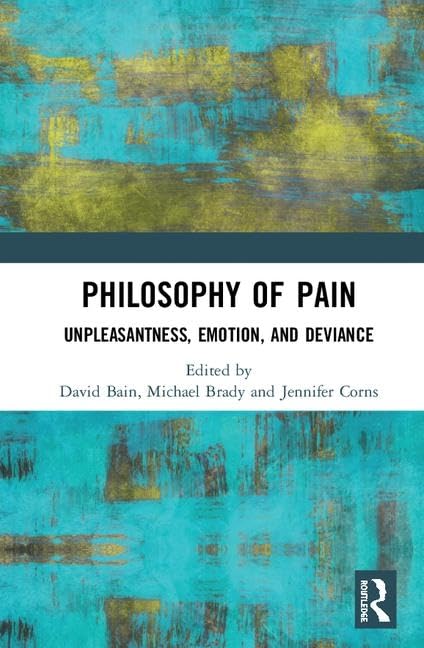Philosophy of Pain: Unpleasantness, Emotion, and Deviance
Philosophy of Pain: Unpleasantness, Emotion, and Deviance is backordered and will ship as soon as it is back in stock.
Couldn't load pickup availability
Genuine Products Guarantee
Genuine Products Guarantee
We guarantee 100% genuine products, and if proven otherwise, we will compensate you with 10 times the product's cost.
Delivery and Shipping
Delivery and Shipping
Products are generally ready for dispatch within 1 day and typically reach you in 3 to 5 days.
Book Details
-
Publisher: Routledge
-
Author: David Bain
-
Language: English
-
Edition: 1
-
ISBN: 9780815361640
-
Pages: 224
-
Cover: Hardcover
-
Dimensions: 9.4 x 6.3 x 0.7 inches
About The Book
Philosophy of Pain: Unpleasantness, Emotion, and Deviance, edited by David Bain, offers a profound and timely investigation into one of the most elusive and intensely personal human experiences — pain. In recent decades, the phenomenon of pain has sparked growing interest across philosophy, psychology, and neuroscience, as experts attempt to unravel its complex nature and impact on human consciousness.
This thoughtfully curated volume brings together a collection of essays that explore fundamental and thought-provoking questions: What is the essence of pain? Why is it unpleasant? How does it intersect with emotion and motivation? The book is organized into three distinct sections — pain and motivation, pain and emotion, and deviant pain — providing readers with a structured and comprehensive examination of the subject.
Covering a wide range of topics including pain and sensory affect, the neuroscience behind pain perception, the role of rationality in pain experience, placebo effects, and the link between pain and consciousness, this work contributes fresh insights to both theoretical and practical understandings of pain.
Essential reading for students and researchers in philosophy of mind and psychology, this book is equally valuable for professionals in cognitive science, behavioral studies, health, and medical humanities seeking to deepen their understanding of pain from a conceptual and experiential perspective. Richly interdisciplinary and intellectually engaging, this book challenges readers to rethink what pain truly means.





